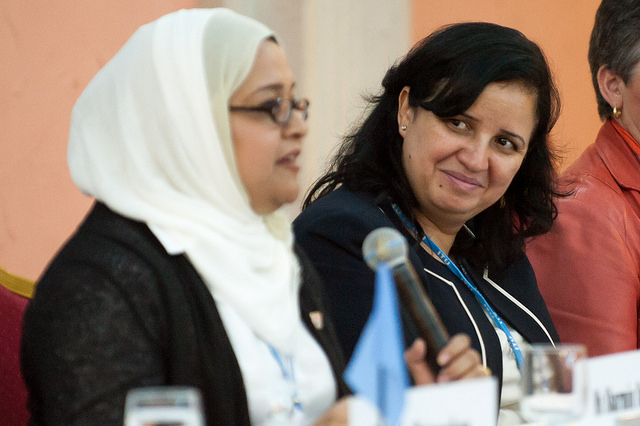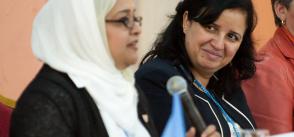
Why Arab world needs more young women scientists for food-secure future
As part of its capacity-building initiatives, ICBA works with different partners to empower women researchers in the Arab world to become future leaders in science. Under its pioneering program called Tamkeen, the center organized a pilot training course in May 2017 for a group of women researchers from Algeria, Egypt, Jordan, Lebanon, Morocco, Oman and Palestine.
Innovation is everything. These words perhaps best describe our age. Today’s world is defined by a constant search for scientific and technological advances. Throughout history innovation has proven a powerful tool in tackling threats to humanity and steadily improving its wellbeing. Our generation is now reaping the rewards of many breakthroughs made over the past century or so.
But our times are also unique in that many of our most profound problems arise from our past achievements. We face a new breed of challenges, some of our own making, that threaten to undo decades of progress in different areas of life. From climate change to population growth, the list is long and daunting. And many of the problems are interrelated in one way or another. Climate change, for example, is forecast to adversely affect food security in many parts of the world over the coming decades. More recurrent and severe droughts already cause great social and economic damage in water-scarce regions.
Against a backdrop of forecasts of the global population reaching 9.7 billion by 2050, the prospect of mass food shortages looks grim. According to the Food and Agriculture Organization of the United Nations, food production will need to go up by as much as 60% to meet the future demand.
Yet some scientists warn that industrial agriculture might be reaching its limits to produce enough food. What is more, yields of major crops are projected to fall by 25% and more by 2050. Agricultural research and innovation has helped to increase global food production by as much as 80% since the mid-1960s, with more than half of the increase having happened in developing countries.
Read the full article via ICBA - Agriculture for tomorrow.
[Photo by ITU Pictures | Flickr]







